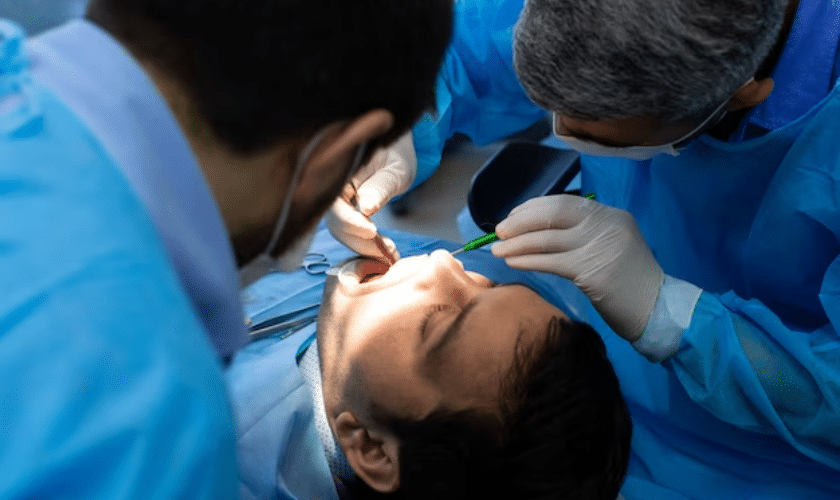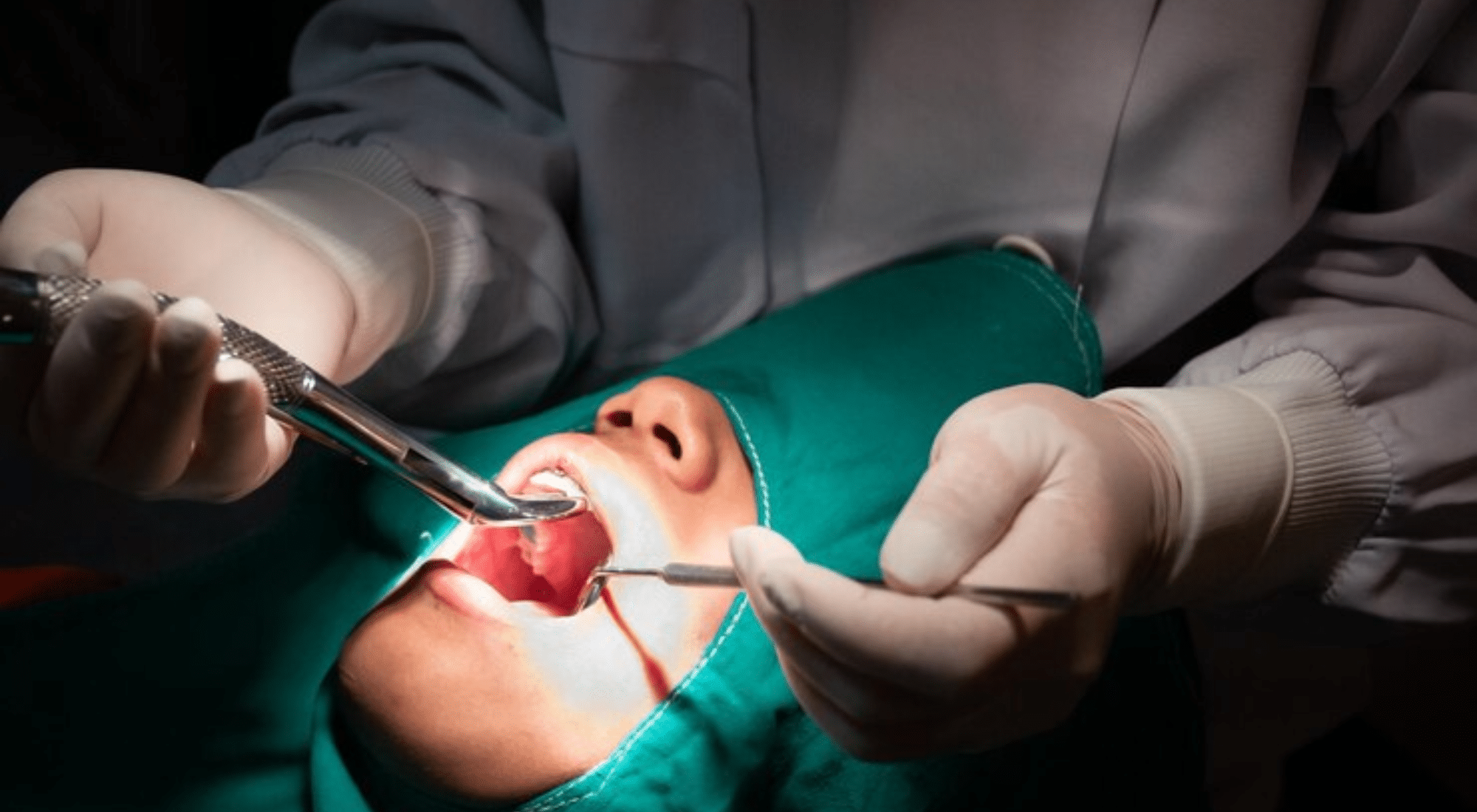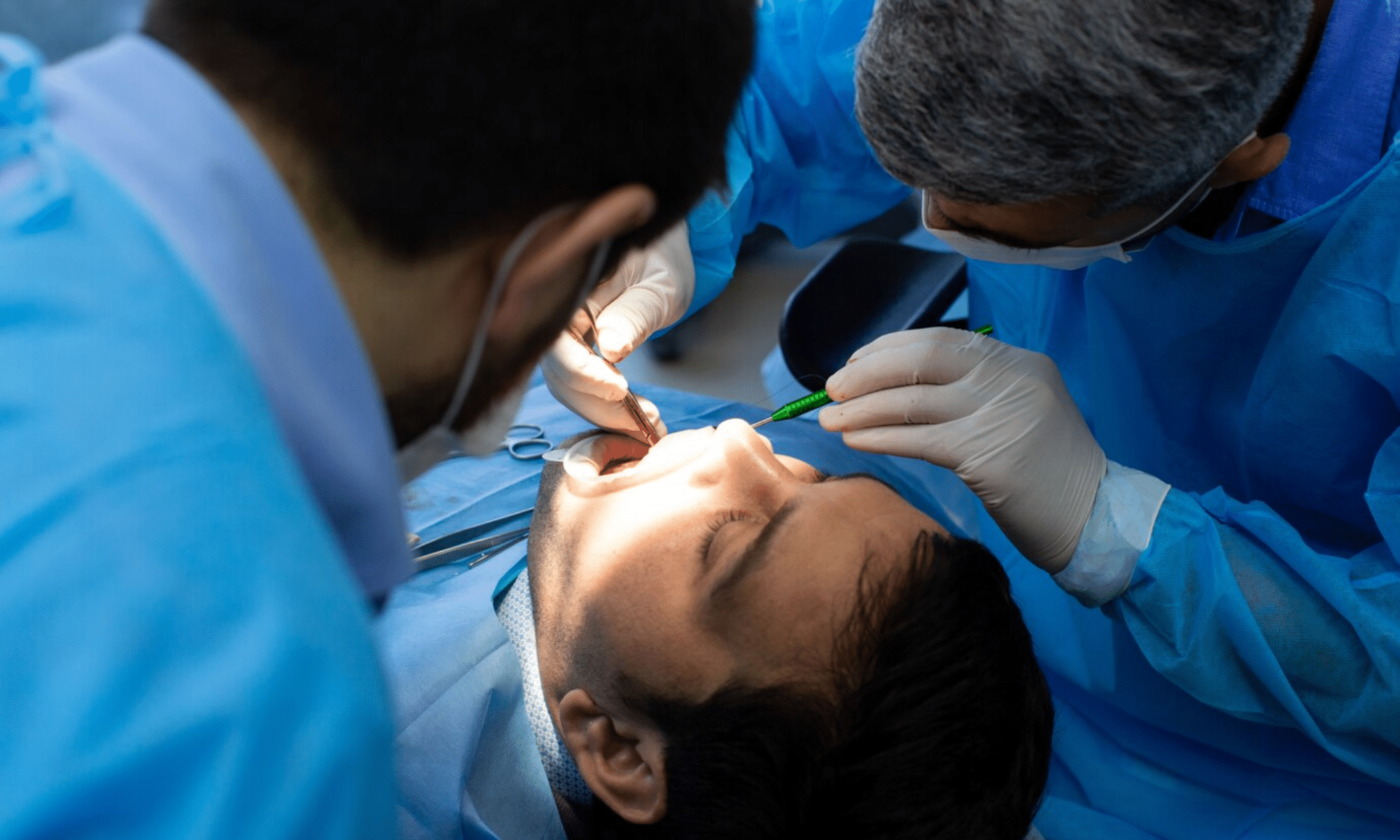
How To Reduce Swelling After Oral Surgery
Are you dreading the aftermath of your upcoming oral surgery? Swelling is a common side effect that can cause discomfort and prolong the healing process. But fear not! In this article, we will share some effective tips on how to reduce swelling after oral surgery, so you can get back to feeling like yourself in no time. Whether you’re getting your wisdom teeth removed or undergoing another dental procedure, these simple strategies will help minimize swelling and promote a speedy recovery. So let’s dive right in and discover how to keep that post-surgery puffiness at bay!
Cold Compresses
One of the most effective ways to reduce swelling after oral surgery is by using cold compresses. Cold compresses help to constrict blood vessels and reduce inflammation, providing much-needed relief.
To use a cold compress, simply wrap ice or a bag of frozen vegetables in a clean cloth or towel. Apply the cold compress gently to the affected area for about 10 minutes at a time. Take short breaks in between applications to allow your skin to warm up before reapplying.
It’s important not to apply the cold compress directly onto your skin, as it can cause frostbite or damage sensitive tissues. Always remember to keep a barrier between the ice pack and your skin.
Using cold compresses immediately after oral surgery can significantly minimize swelling and discomfort. Be sure to follow this remedy consistently within the first 24 hours following your procedure for optimal results.
Remember that everyone’s healing process may vary, so it’s essential to consult with your dentist or surgeon about specific recommendations for reducing swelling after your particular oral surgery procedure.
Switch to Heat
After the initial 24 hours, you can start using heat therapy to reduce swelling after oral surgery. Heat helps increase blood flow to the area, promoting healing and reducing inflammation. Here are a few ways you can switch to heat for effective relief.
One option is to apply a warm compress or heating pad on the outside of your face near the surgical site. Make sure it’s not too hot, as it could cause burns. Apply it for around 15 minutes at a time, several times a day.
Another way is using warm saltwater rinses. Dissolve half a teaspoon of salt in eight ounces of warm water and gently swish it around your mouth for about 30 seconds before spitting it out.
Additionally, sipping on warm liquids like herbal tea or soup can also provide some relief while nourishing your body during recovery.
Remember, always consult with your dentist or oral surgeon before switching from cold therapy to heat therapy, as they will best advise you based on your specific situation.
By incorporating heat therapy into your post-oral surgery routine, you can help alleviate swelling and promote faster healing in no time!
Rest and Elevation
Rest and elevation are key factors in reducing swelling after oral surgery. After the procedure, it’s important to give your body the rest it needs to heal properly. Make sure to take time off from work or any strenuous activities, allowing yourself ample opportunity to relax.
Elevation is another simple yet effective technique for swelling reduction. Prop up your head with pillows while lying down or sleeping, as this helps promote fluid drainage away from the surgical site. Keeping your head elevated will also help reduce discomfort and improve blood flow.
Remember not to engage in any vigorous exercise or physical activity that may increase blood pressure and cause further swelling. Give yourself time to heal by avoiding anything that could potentially disrupt the healing process.
Rinse With Salt Water
One effective way to reduce swelling after oral surgery is by rinsing with salt water. This simple yet powerful solution can help alleviate discomfort and promote healing in the surgical area.
To prepare a salt water rinse, dissolve half a teaspoon of salt in eight ounces of warm water. Make sure the water is not too hot, as it may cause further irritation. Once the salt is completely dissolved, gently swish the mixture around your mouth for about 30 seconds before spitting it out.
Salt water has natural antibacterial properties that can help prevent infection and reduce inflammation. It also helps to cleanse the surgical site and remove any debris or bacteria that may be present.
By incorporating this easy technique into your post-surgery care routine, you can aid in reducing swelling and promoting faster healing. Just remember to follow your dentist’s instructions on when and how often to rinse with salt water for optimal results.
Maintaining proper oral hygiene practices, including rinsing with salt water, can play a crucial role in ensuring successful recovery after oral surgery. So don’t underestimate the power of this simple remedy!
Don’t Smoke
One of the most important things you can do to reduce swelling after oral surgery is to avoid smoking. Smoking not only has detrimental effects on your overall health, but it can also delay the healing process and increase the risk of complications.
Cigarette smoke contains harmful chemicals that can damage blood vessels and impair circulation. This can lead to poor oxygenation and nutrient delivery to the surgical site, which hinders the body’s natural healing response. In addition, smoking increases inflammation in the body, further exacerbating post-surgical swelling.
Furthermore, smoking introduces heat and toxins into your mouth, which can irritate the delicate tissues that are trying to heal. It also increases saliva production, which may cause discomfort or disrupt any sutures placed during surgery.
If you’re a smoker who is scheduled for oral surgery, it’s crucial to quit at least a few days before your procedure. Avoiding cigarettes both before and after surgery will significantly improve your chances of a smooth recovery.
Remember, quitting smoking not only benefits your oral health but also has numerous long-term benefits for your overall well-being. So take this opportunity as a motivation to kick this habit for good!
Practice Proper Care After Oral Surgery
After undergoing oral surgery, it is crucial to practice proper care to ensure a smooth and speedy recovery. Here are some essential tips to follow:
1. Follow your dentist’s instructions: Your dentist will provide you with specific guidelines for post-operative care. It is important to adhere to these instructions carefully, as they are tailored specifically to your situation.
2. Take prescribed medications: If your dentist has prescribed any medications, such as painkillers or antibiotics, make sure to take them as directed. These medications can help manage pain and prevent infection.
3. Be mindful of what you eat: Stick to soft foods that require minimal chewing in the first few days after surgery. Avoid hot and spicy foods, as well as crunchy or hard foods that may irritate the surgical site.
4. Practice good oral hygiene: Gently brush your teeth with a soft-bristled toothbrush, being cautious around the surgical area. Rinse with an antibacterial mouthwash recommended by your dentist.
5. Avoid strenuous activities: Resting is vital for proper healing after oral surgery. Avoid strenuous physical activities that could put pressure on the surgical site and delay the recovery process.
6. Manage swelling and discomfort: Apply ice packs on the outside of your face intermittently for 20 minutes at a time during the first 24 hours after surgery to reduce swelling and alleviate discomfort.
Reducing swelling after oral surgery is crucial for a smooth and comfortable recovery process. By following these tips and techniques, you can minimize swelling and promote healing in the affected area.
Remember to start with cold compresses immediately after surgery to constrict blood vessels and reduce inflammation. After 24 hours, switch to heat therapy to increase blood flow and aid in the healing process. Resting and elevating your head while sleeping or resting will also help reduce swelling.
Additionally, rinsing with salt water regularly helps keep the surgical site clean and free from bacteria. Avoid smoking as it can delay healing and increase the risk of complications. Practicing proper care by following your dentist’s post-operative instructions is essential for a successful recovery.
By implementing these strategies, you can effectively manage swelling after oral surgery while promoting optimal healing. Always consult with your dentist or oral surgeon if you have any concerns or questions during your recovery journey.
Remember that every individual’s experience may vary, so it’s important to listen to your body and adjust accordingly. With patience, rest, proper care, and time, you’ll be on your way to a healthy smile in no time!




